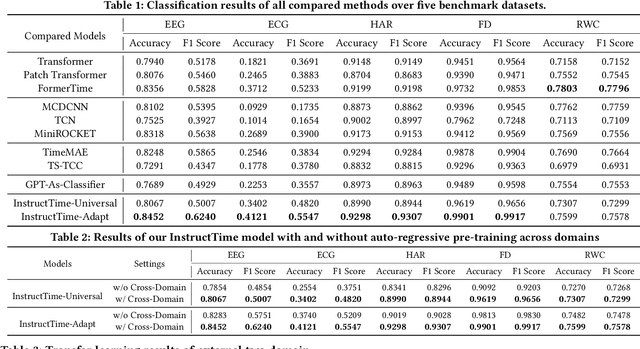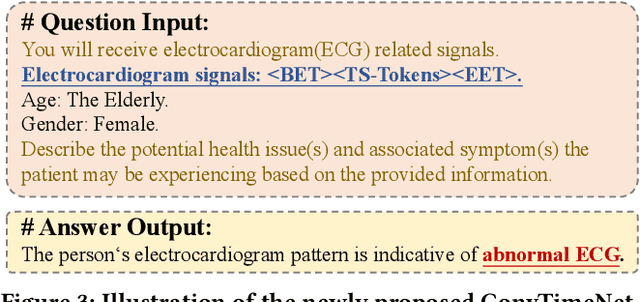Advancing Time Series Classification with Multimodal Language Modeling
Paper and Code
Mar 19, 2024



For the advancements of time series classification, scrutinizing previous studies, most existing methods adopt a common learning-to-classify paradigm - a time series classifier model tries to learn the relation between sequence inputs and target label encoded by one-hot distribution. Although effective, this paradigm conceals two inherent limitations: (1) encoding target categories with one-hot distribution fails to reflect the comparability and similarity between labels, and (2) it is very difficult to learn transferable model across domains, which greatly hinder the development of universal serving paradigm. In this work, we propose InstructTime, a novel attempt to reshape time series classification as a learning-to-generate paradigm. Relying on the powerful generative capacity of the pre-trained language model, the core idea is to formulate the classification of time series as a multimodal understanding task, in which both task-specific instructions and raw time series are treated as multimodal inputs while the label information is represented by texts. To accomplish this goal, three distinct designs are developed in the InstructTime. Firstly, a time series discretization module is designed to convert continuous time series into a sequence of hard tokens to solve the inconsistency issue across modal inputs. To solve the modality representation gap issue, for one thing, we introduce an alignment projected layer before feeding the transformed token of time series into language models. For another, we highlight the necessity of auto-regressive pre-training across domains, which can facilitate the transferability of the language model and boost the generalization performance. Extensive experiments are conducted over benchmark datasets, whose results uncover the superior performance of InstructTime and the potential for a universal foundation model in time series classification.
 Add to Chrome
Add to Chrome Add to Firefox
Add to Firefox Add to Edge
Add to Edge